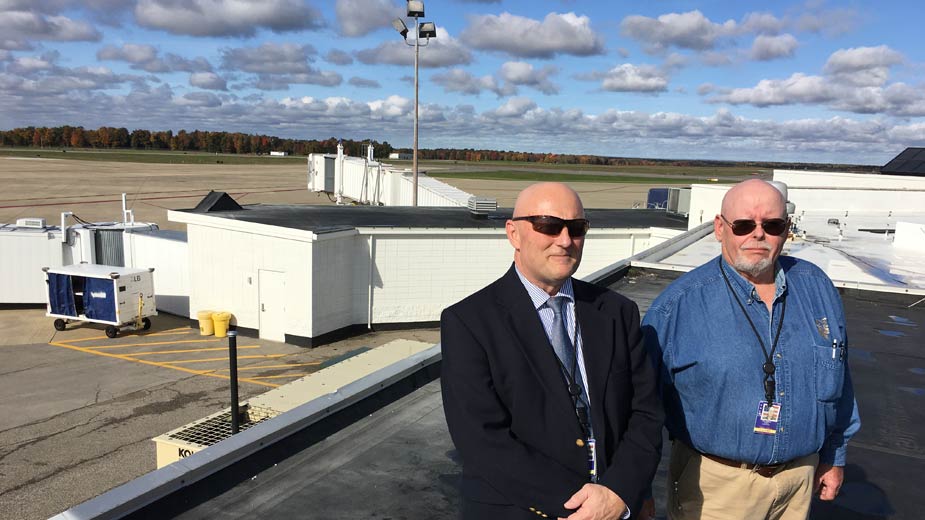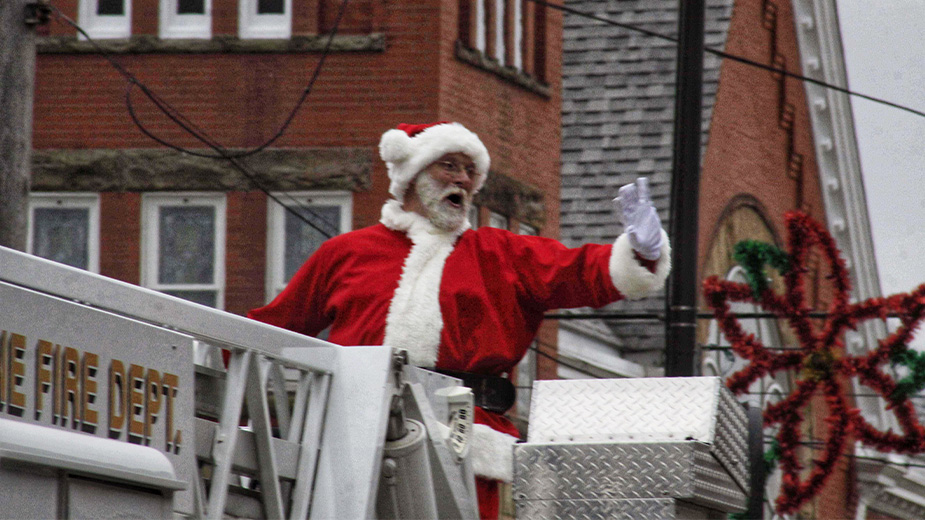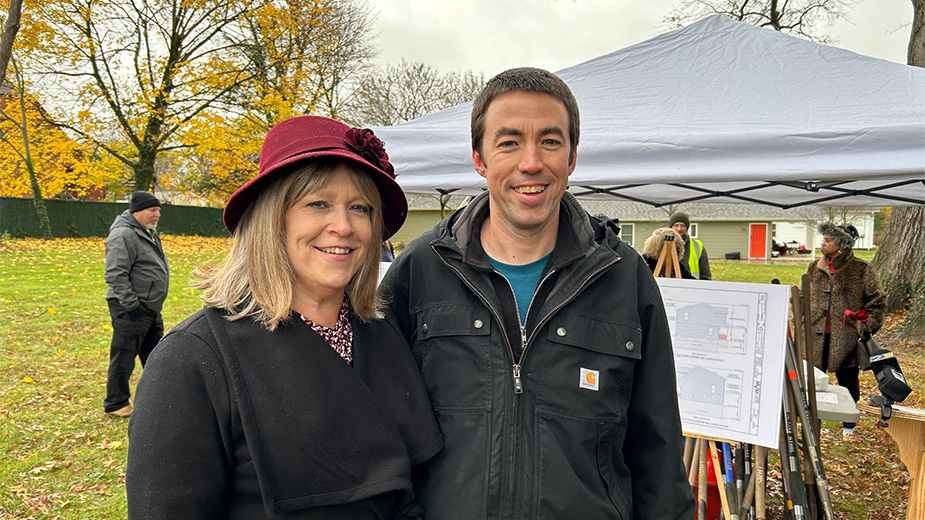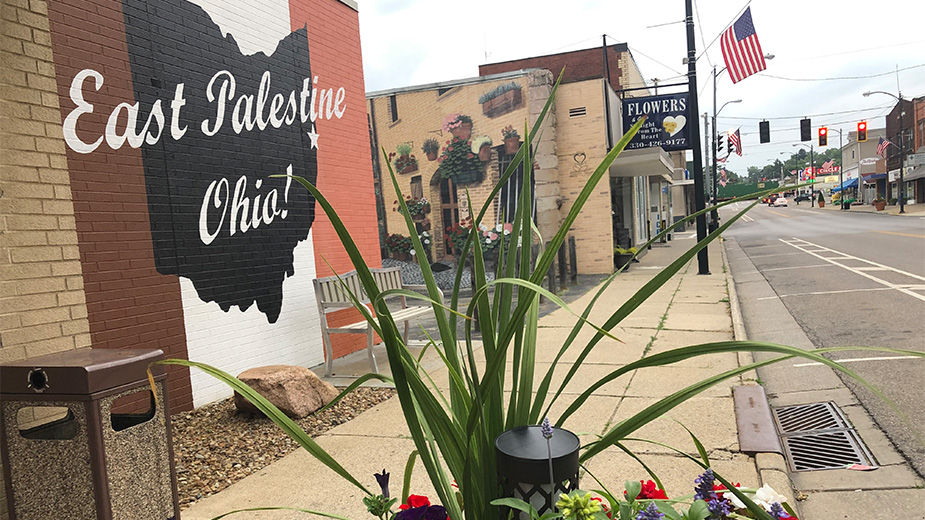Airport Employee Taxis to Retirement with Window Seat
VIENNA TOWNSHIP, Ohio – Youngstown-Warren Regional Airport will lose its daily access to a big chunk of institutional memory when Jack Sullivan retires Friday. Even so, officials with the Western Reserve Port Authority say they’re not letting him get too far away.
Sullivan, who will continue as a consultant, has been employed here 43 years. He is stepping down as airfield projects coordinator after serving several years as superintendent of maintenance and operations.
“It’s been a pleasure, he said.
During his four-plus decades with the airport, Sullivan has had a front-row seat – more accurately, window seat — to witness both the economic changes of the Mahoning Valley and the transition in the airline industry.
His tenure included managing the response to the most significant aviation-related emergency ever, the aftermath of the terrorist attacks of Sept. 11, 2001.
In 1973, Sullivan joined the staff of what was then Youngstown Municipal Airport, then owned by the city of Youngstown, after working a year or so at Commercial Shearing Inc. Before that, he served in the U.S. Navy 4½ years.
Sullivan decided to leave Commercial Shearing, which he describes as a “meat factory,” because employees were losing their fingers and thumbs in accidents there. When he saw an advertisement for the civil service exam for equipment operators at the airport, he signed up to take it.
“I took the exam, did well with the exam and was hired,” he said.
When he started at the airport, United Airlines was among the carriers that served it. That changed with the Airline Deregulation Act of 1978, which ended the requirement that airlines serve all airports, Sullivan said.
From that point, the airlines that provided service at the airport scaled back. Except for this year’s brief stint by Great Lakes JetExpress, the airport has been without scheduled daily service since 2003.
Another pivotal event that affected the airport’s fortunes occurred in September 1977 — “Black Monday,” the shutdown of the Campbell Works of Youngstown Sheet & Tube Co., followed in quick succession by other major steelmakers here. The airport lost the business of the executives who flew to and from the steel companies’ headquarters and from the mill employees who used the airport, he said.
When the Western Reserve Port Authority was formed in 1992 to assume operation of the Vienna Township airport, the airport manager gave him the choice of becoming general foreman or remaining a city employee and leaving the airport.
The terrorist attacks of Sept. 11, 2001, posed a major challenge to the airport and its staff, recalled Sullivan, then superintendent of maintenance and operations. Maintenance personnel were repairing cracks in the runway when they got the call to stop immediately and prepare for the arrival of several wide-body aircraft, which the airport could receive because of its 9,000-foot runway.
“We dumped 200 gallons of liquid rubber into cracks that we weren’t planning to fill,” he said, because once the kettle was shut off, the rubber would harden and be unusable.
“We had to screen every aircraft,” Sullivan said. “We had bomb squads out here. We had bomb-sniffing dogs.”
The first priority for dealing with the passengers was feeding them. The airport had a restaurant, but was unprepared to handle the five wide-bodied aircraft plus other air traffic diverted to the airport when the FAA grounded all flights at all U.S. airports. Sullivan contacted Chrystal Catering, which responded quickly.
“We had to get buses to bus people to various hotels and motels,” he continued. Staff also had to move vehicles from within 300 feet of the terminal building and establish a barricade perimeter around the airport.
“I never want to go through that again,” he remarked.
Among the high points of his time with the airport is the $4.5 million midfield taxiway project nearing completion, a project he will continue to work on as a consultant.
His retirement Friday is actually his second. He retired in June 2001 as superintendent only to be hired a short time later as airfield projects coordinator, the post he is retiring from this week.
“It was written up in 2000 as a project we needed to get done but we didn’t have the funding,” he said. “We finally got the funding.”
The midfield taxiway project demonstrates the value of Sullivan’s knowledge, Dan Dickten said. Contractors “tore up half the midfield out there,” the director of airport operations said.
“There were things out there that had it not been for him on the site they would have hit,” meaning increased repair costs, he continued. “We would have gone over budget instead of under budget. He was responsible for us being at least $200,000 under budget on that project.”
While pleased to remain with the airport in some capacity, Sullivan said he looks forward to spending more time with his family, including his wife, a retired schoolteacher, and his five grandchildren.
He is also looking forward to working on various improvement projects. “I consider myself a decent carpenter,” he added.
“Jack’s been invaluable to the port authority because of his knowledge of the airport itself, the infrastructure of the airport,” said John Moliterno, executive director of the port authority. “Every water line, every sewer line, every utility line – Jack knows where they are. … He has information simply no one else has.
“We’re happy to see him have a chance to retire and enjoy his life a little bit more but we’re also very comfortable with the fact that he has been open to consulting and [us] having the ability to bring him back when we need him,” Moliterno said.
“We’re not going to let him get too far away,” Dickten added. “He’s looking forward to a little bit of a break – probably November, December – then we’ll probably start to get him busy on some of these upcoming projects for next year. But he’s a very valuable resource. Huge.”
Pictured: Airport aviation director Dan Dickten and Jack Sullivan, who retires Friday.
Copyright 2024 The Business Journal, Youngstown, Ohio.



